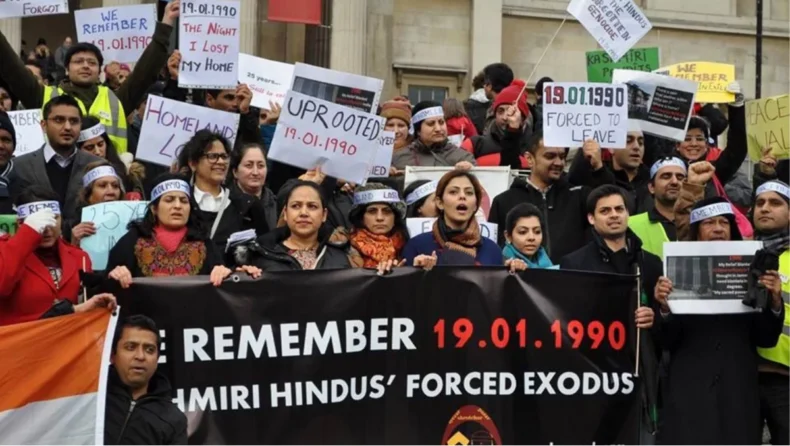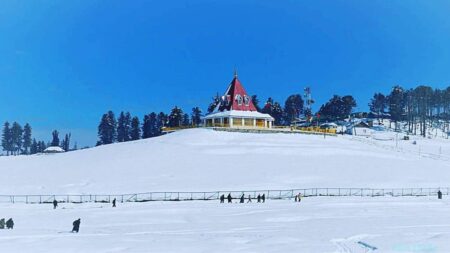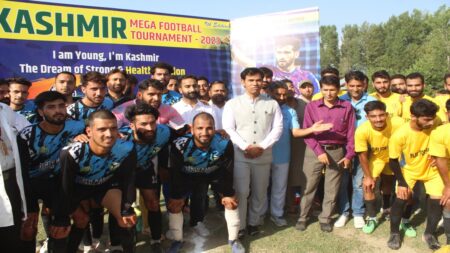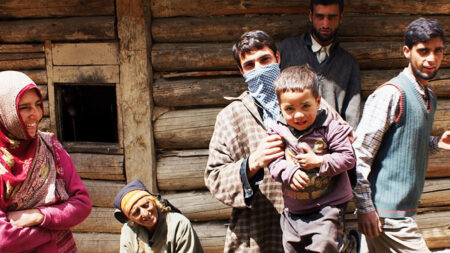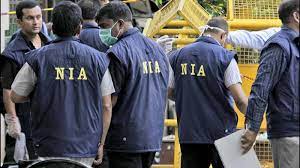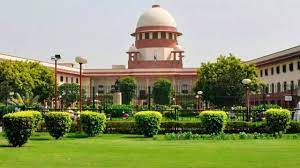Delimitation Commission has recommended representation for Kashmiri Pandits in J&K Assembly by way of nomination.
According to an RTI reply, the total number of Kashmiri Pandit families registered as migrants is 44,167
The Delimitation Commission is the body responsible for drawing and demarcating the boundaries of constituencies throughout the country for electoral purposes.
The Commission has in its report submitted the recommendation for representation for Kashmiri Pandits and displaced people from the territory of Pakistan Occupied Kashmir (PoK) by means of nomination in the Jammu and Kashmir Assembly. A total of nine seats shall also be reserved for people belonging to Scheduled Tribes (STs) for the first time.
According to the report submitted, all five parliamentary constituencies will have an equal number of Assembly constituencies.
As per the report, it has been suggested to increase the Assembly seats for Kashmir from 46 to 47, while the Jammu region will have 43 seats instead of the earlier 37. Jammu and Kashmir will have a total of 90 Assembly seats. It has to be noted that Jammu and Kashmir have been treated as a single entity for the purpose of delimitation.
The commission also recommended reservations for STs in nine Assembly constituencies, out of which six are in Jammu and three in Kashmir valley. All Assembly constituencies shall remain within the boundaries of concerned districts.
About the parliamentary constituencies, one of them has been carved out by combining the Anantnag and Rajouri, and Poonch regions of Jammu. Following this, each parliamentary constituency shall have an equal number of Assembly constituencies i.e. 14 each.
Patwar circle is the lowest administrative unit that has not been broken
The Delimitation Commission visited Jammu and Kashmir in July last year to interact with political leaders and civil society groups and get inputs on the exercise to redraw the electoral constituencies in the union territory. The decision to visit Jammu and Kashmir was taken after the panel held a meeting at the Election Commission’s office in Delhi in June.
The redrawing of electoral constituencies was necessitated after Jammu and Kashmir were split into two Union Territories on August 5, 2019, following the abrogation of Article 370, which granted special status to the erstwhile state.
Conclusion:
The Commission’s recommendation is a step forward in rehabilitating the people that have been displaced from the region which is one of the most volatile in the world. Political representation is just but the first step in restoring the people to the lives they once had, well as much as possible anyhow. It remains time to tell whether this will be the first of a series of measures that undo the wrongs done to the people or is it just a hollow, isolated and inconsequential act. Only time shall tell.
Read Also – Calling Kashmir ‘Occupied’ & Kashmiris ‘Slaves’ is unlawful: J&K High Court







